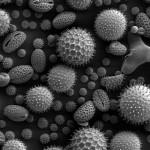As many as 12% of the population are believed to suffer from hay fever, and the incidence is thought to be increasing. Non-prescription treatments for hay fever are available in both oral and topical formulations. Antihistamines, decongestants and topical steroids are the main treatments used to combat the symptoms.
Antihistamines: Antihistamines are generally effective in controlling symptoms of hayfever, including sneezing, nasal itching, rhinorrhoea (‘runny nose’) and to a lesser extent, allergic conjunctivitis. They are regarded as the treatment of choice. For maximum effect antihistamines should be taken when symptoms are expected rather than after they have started if possible. Antihistamines available without prescription include Zirtek and Clarityn, which are non-sedative and Piriton, which may cause drowsiness. If you are taking any other medication you should tell the pharmacist or consult your doctor.
Nasal Preparations: The products available include decongestant drops or sprays, corticosteroid sprays and sodium cromoglycate. Corticosteroids inhibit the response of the body to allergen exposure and are effective in relieving all nasal symptoms including congestion. If symptoms are already present when treatment is started it may take several days before an effect is noticed and weeks before full relief is obtained. Decongestant preparations are useful to begin treatment when the nose is badly blocked. Sodium cromoglycate is a useful prophylactic agent and is available as eye drops—eg. Opticrom or Vividrin eye drops.
To assist selection, oral antihistamines, the non sedative products are taken once daily while Piriton (sedating) is taken up to four times a day, they are the common first line treatment. If nasal congestion is severe nasal products should be considered and for severe eye symptoms sodium cromyglcate eye drops are useful.
John Duffy MPSI
Claregalway Pharmacy



